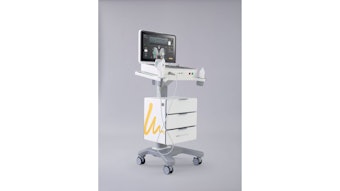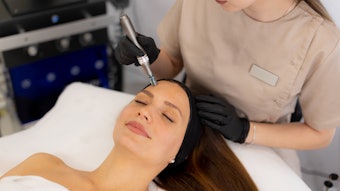
Abstract: When combining a successful physician with a successful medical spa, many questions can arise regarding the best ways to address issues such as branding and staffing. This column focuses on some of the pros and cons when considering these types of concerns.
Q: What is more critical to a medical spa’s success: having a reputable physician working at the facility or allowing the medical spa to stand on its own as a business entity?
A: In this scenario, the value proposition depends on the ultimate goal of the business. It is interesting that many medical spas do not incorporate the names of the physicians operating them into the facility’s name. The result of this separation is to identify more value in the facility—as opposed to the physician who is present at the practice—potentially making it easier to sell the business in the future or, in the case of chain establishments, to provide flexibility when hiring and firing medical directors.
On the flip side, creating a primary association between the medical spa and the directing physician adds value and credibility to the business. A medical spa with a strong and obvious physician presence is more likely to be viewed as trustworthy and experienced.
However, linking a medical spa to a particular physician in this sense could potentially limit exit opportunities for the named physician in the future. This can be counteracted with strong branding that involves the physician’s name becoming a unique brand, which therefore lessens the medical spa’s association to a specific person, and once again places more value in the facility.
Ultimately, because the core business of a medical spa is to administer services, the individuals providing them—from physicians to mid-level providers—are the ones adding the most value. In time, certain treatments, such as the administration of Botox or dermal fillers, may become so commodified that the products become the drivers as opposed to the administration of them. If this scenario becomes true, the value that a particular physician may add to elevate one medical spa over another could become negligible. However, value is currently placed on the actual provider of the service, and because of that, a strong physician presence at a medical spa brings more value than the facility itself as a stand-alone business.
Q: Should a physician be directly involved in the administration of the nonsurgical medical spa services and products that are offered within the surgical practice, or should ancillary staff be hired to perform such services?
A: Making the decision to add nonsurgical services to an existing menu of surgical services is a no-brainer, especially during the economic downturn when patients are much more likely to budget for inexpensive quick fixes as opposed to big ticket surgical procedures. However, the level at which the physician wants to integrate such services into the practice will depend on the level of complexity the doctor wants to undertake—and this is a personal decision.
All nonsurgical services can be administered by the physician, from lasers to injectables. However, there are multiple downsides to such a business model.
The downsides
Deters focus from surgical procedures. As a surgeon, time spent performing nonsurgical services is potentially time that cannot otherwise be spent administering more lucrative surgical procedures or providing surgical consults. Even if the surgical practice is slow during the down economy, getting sidetracked by performing nonsurgical services takes focus away from marketing activities a physician could be taking part in to increase surgical patients and prospects.
Limits the number of patients. There are only so many patients one physician can see in a day. Hiring additional staff makes the practice scalable, frees up the surgeon to perform more lucrative and specialized procedures, and also increases foot traffic in and out of the facility. Nonsurgical foot traffic generated by nurse injectors and estheticians often results in increased surgical patients and always results in more exposure for the clinic. In order to capitalize on the increase in patient flow created by ancillary staff, the physician needs to make sure that an effective cross-marketing program is well-established and all staff members have been well-trained. (Editor’s note: See “Effective Internal Cross-marketing” by Susie Naficy in the Fall 2009 issue of Merge magazine for tips about how to implement marketing across the different departments in your practice.)
Downgrades patient perception. One drawback to surgeons performing all of their own nonsurgical services is the potential of creating an unfavorable patient perception. If a surgeon is administering a patient’s dermal filler and laser hair removal procedure, the conclusion may be drawn that the doctor is not busy enough in the surgical practice and therefore, must not be as good as local competitors. Highly specialized surgeons need to maintain their status. Therefore, acting in a supervisory capacity to ancillary staff performing nonsurgical services adds credibility to the staff, and also keeps the surgeon on an elevated playing field in the patients’ eyes.
The benefits
On the other hand, direct physician involvement also has several benefits.
Lowers practice complexity. If the physician decides to forgo hiring additional staff, the difficulties in running day-to-day business operations won’t increase. Hiring additional staff not only adds to overhead, but it also exponentially increases management requirements. When making the decision to hire additional staff, it is important to closely examine whether the net reward will sufficiently compensate for the additional attention a larger staff demands.
Simplifies quality control. The most obvious benefit of physicians performing their own treatments is the ability to directly control the quality of services being performed. Although ancillary staff members who are highly trained and closely supervised by the physician are quite capable of producing consistently good results for patients, there is no substitute for doing it yourself to ensure the outcomes you want.
If a physician makes the decision to hire nurse injectors and estheticians to perform nonsurgical services, the revenue reward is potentially higher, but so is the risk—not to mention the increased complexity.
Ultimately, the pros and cons need to be weighed and, in both scenarios, a well-constructed long-term business plan needs to be established before taking action.
Q: What are the general pros and cons of being part of a franchise or chain medical spa?
A: Becoming the medical director of a chain medical spa has several benefits to a physician. Often, established physicians can continue to function in their own practices in addition to having their name associated with a medical spa chain, collecting a fee in exchange for their services. In many cases, physicians who do not have a background in cosmetic surgery or dermatology are able to associate with a medical spa chain as a medical director and, in these cases, such an association could allow the physician to gain experience in aesthetic medicine. Some medical spas require that their medical directors to be on-site at all times, but many do not, allowing more flexibility in the physician’s schedule. Be sure to check with your state’s board to find out whether your state requires a physician to be on-site at all times.
The disadvantage of associating with a medical spa chain depends on what the physician is seeking as a long-term practice model. Surgeons who are looking to establish themselves in the community with high-end surgical practices might find that associations with chain medical spas can be counterproductive. Furthermore, exposure to increased liability is a big consideration—especially if the spa’s medical director is not on-site. In addition, many medical spa chains require physicians to travel between locations and this schedule is not only taxing on the traveling doctor, but it is almost impossible to build trust and rapport with the staff the physician is supervising. And a healthy relationship with staff members is critical to the ultimate success of the business. Lastly, many medical directors of medical spas do not own equity interests in the business. This is not necessarily true of a franchise, but the absence of building equity in your own brand and business is a potential flaw to such an association.










